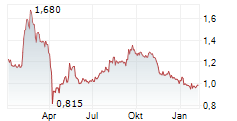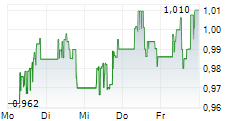
NORTHAMPTON, MA / ACCESSWIRE / October 30, 2024 / Lenovo

By Stefan Larson, Global Sustainability Services Engagement Leader
The road to sustainability can seem like a daunting path, with legislation, ESG targets, and ever shifting customer expectations helping to shape a more sustainable future. It's clear that organisations need an effective sustainability strategy, but where should they even begin? Embracing circularity is a great place to start.
Circularity is a practice that focuses on reducing as much waste as possible. Along with the use of circular resources in the creation of new products and recovering and recycling materials at end-of-life, circularity also includes repairing and reusing devices where possible, giving them a second or even third lease of life. This is where plenty of organisations can make inroads into achieving their sustainability ambitions.
We're starting to see refurbished devices become increasingly popular, with France implementing legislation to must be refurbished. That percentage will increase in future, and it's easy to imagine other countries following in France's footsteps, but where does this leave us when it comes to refurbished devices and circularity?
Breaking organisations down into personas
For starters, refurbished products aren't for everyone. Some businesses naturally need cutting-edge technology that only the latest devices can provide, and they always will. The same applies when you break down businesses and organisations to a more granular level, with individual employees naturally having different requirements to carry out their roles.
Companies and organisations are made up of different personas, from graduate interns to the CEO, and everybody in between. Of course, there's generally no specific need for all employees to have the latest and greatest equipment to do their jobs effectively. Equally, purchasing refurbished equipment doesn't have to be an all-or-nothing approach, making it easier for businesses to embrace circularity without compromises.
Solutions such as Lenovo's Certified Refurbished could be perfectly suited to some personas, while others will still require brand new technology. These requirements may change as employees and organisations grow and develop. Tech providers such as Lenovo can work closely with customers to determine their exact requirements and provide a blend of new and refurbished devices and solutions that meet those needs.
At the same time, refurbished equipment has the potential to solve two very distinct problems - not only helping companies from a sustainability point of view, but also helping to deliver more cost-effective tech solutions.
How hybrid approaches can help to meet larger sustainability ambitions
A hybrid approach to meeting challenging sustainability ambitions has been seen before in other industries. The automotive sector is a great example, with a desire to shift away from fossil fuels and embrace more sustainable solutions such as electric.
Widespread change will never happen overnight, with the need for more efficient and affordable technology, along with wider infrastructure that can support such a large change. This can take years or even decades to implement.
In the meantime, we've seen a phased approach where manufacturers have embraced more sustainable solutions, from hybrid propulsion to the introduction of electric vehicles, gradually reducing reliance on fossil fuels.
Naturally, the tech industry faces different challenges on its journey to sustainability. Once again, however, a phased approach can have a huge impact. Different solutions can help to meet individual requirements, with a mixture of new and refurbished devices helping organisations to work towards demanding long-term sustainability targets.
The need to rethink our approach to technology
As with the automotive industry, there's also a need to consider our long-term approach to technology. Along with helping organisations to meet sustainability targets and even cut costs, refurbished devices can also solve a problem when it comes to the long-term availability of natural resources.
The materials we use to create computers, laptops, tablets and other devices are not unlimited. There are numerous rare earth metals used in modern electronics, from neodymium to europium, and while these materials are currently relatively abundant, producing them at scale is becoming increasingly challenging.
The shift towards electric vehicles means the automotive industry requires a growing number of rare earth metals which are also required in other technology sectors such as PC and laptop manufacturing. There are concerns that future demands for such rare earth metals may eventually exceed supply.
Going beyond recycling and giving devices a new lease of life
Reusing the metals found in electronics that have reached the end of their natural lives is an obvious way of implementing long-term circularity, and solutions such as Lenovo's Asset Recovery Services (ARS) can help when it comes to the responsible and environmentally conscious disposal of unwanted hardware.
Lenovo Certified Refurbished, and extending the usable life of a device can also help in the interim, however. This ensures that devices last as long as possible, and that fewer natural resources are consumed unnecessarily.
To reiterate, such an approach to circularity isn't the only way to meet sustainability ambitions, but it is a useful starting point or an effective step on any journey towards meeting ESG ambitions.
View additional multimedia and more ESG storytelling from Lenovo on 3blmedia.com.
Contact Info:
Spokesperson: Lenovo
Website: https://www.3blmedia.com/profiles/lenovo
Email: info@3blmedia.com
SOURCE: Lenovo
View the original press release on accesswire.com




